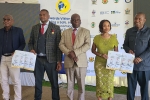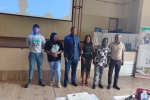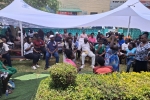By Own Correspondent
YOUNG women’s advocacy group, Economic Justice for Women’s Project (EJWP) has urged parliament to urgently consider the elevation of unpaid care work, hinting that the vice is placing the already weakened gender group at a grave economic disadvantage.
In the NGO’s policy brief presentation submitted Friday to the Parliamentary Portfolio Committee on Finance and Economic Development, EJWP called on the government to urgently consider upgrading care work for women.
“It is imperative for the government of Zimbabwe to consider elevating the alternative care economy where most women have been participating in unpaid care work since independence.
“Women have been subsidizing the government in the health, education and other social sectors as they take care of families,” he said.
The organisation said women have played a pivotal role on the cases which saw the scourge of the HIV/AIDS, the various epidemics and pandemics that have hit Zimbabwe, droughts, structural adjustment programs and exacerbated by the COVID-19 pandemic.
International Labour Organisation (ILO) defines Unpaid Domestic Work as non-remunerated work carried out to sustain the well- being, health and maintenance of other individuals in a household or the community.
Statistics across the globe show that women and girls are responsible for 75% of Unpaid Care and Domestic Work.
A 2019 report by Action Aid noted that women spend 4 hours and 25 minutes a day doing UCDW in comparison to men who average one hour 25 minutes.
Globally, the economic contribution of unpaid care work – overwhelmingly done by women - has been estimated at USD 11 trillion
Care work, both paid and unpaid, is currently mostly done by women. Despite its importance, care work continues to lack visibility. It is underestimated and disregarded in the design of economic and social policies.
The United Nations Development Fund for Women says the worst affected countries in terms of UPCW include Swaziland, Botswana, Lesotho, South Africa and Zimbabwe.








Leave a comment